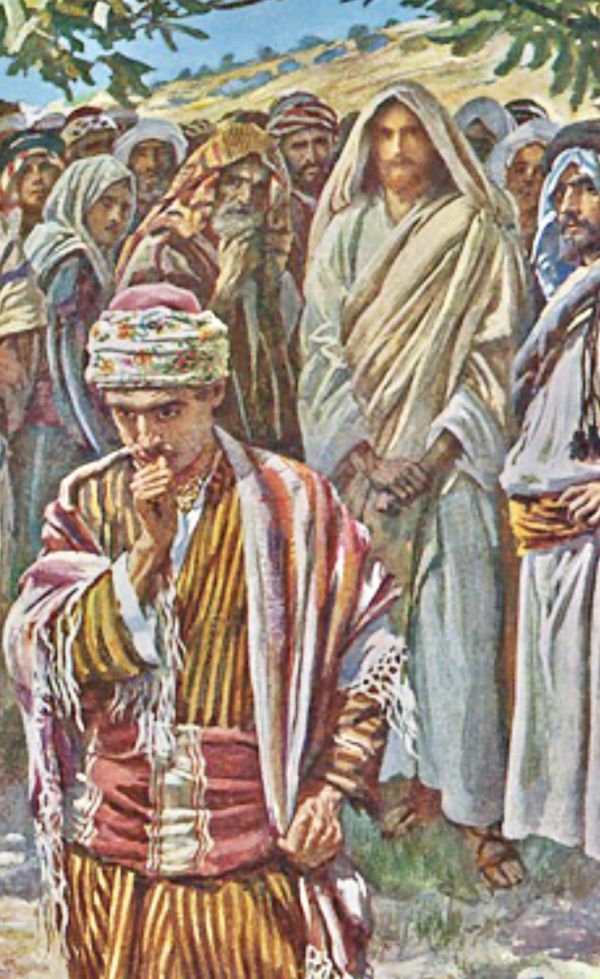The friendship of those who count and their facilitations, or the inverted world
(Mt 19:23-30)
It is not easy to enter the logic of the Gift and place oneself in authentic following of the Lord, in pursuit of a non-shoddy Happiness.
But precisely the Gospels are Ways that distinguish individual fulfilment and destiny from both expectations and obvious designs and intentions.
Trivial expectations, common streets and thoughts in fact lock the meaning of existence into what is already represented.
In such a way, access of the rich to a community that lives Faith in Christ becomes problematic (vv.23-24).
Fertile strength of the weak surpasses the fabulous and comfortable results expected thanks to the support of the well-introduced.
Human impossibility and possibility of God (v.26): the Father transmits authentic and flourishing Life, while goods pull to the other side.
They normalize existence and make it stagnate: they give opposite orders.
So, faced with the rigid and "absurd" position of the Master, the apostles are frightened (v.25): why not take advantage of the help of wealthy people, who could make everything easier, expeditious and grandiose?
Detachment from certain banners is impossible with men (v.26). But the “area” in which God reigns is his Church, even not visible; a reality that is configured as a sort of inverted world (vv.28-30).
The Apostles themselves seem to remain tied to the mentality of return: «what will we have?» [v.27].
The idea of retribution was typical of archaic religious culture. Unfortunately, the lust for advantage was crushing Love, annihilating the gratuitousness of gestures, denying the meaning of the Covenant.
Thus, in his free proposal Jesus wants to introduce the support of an intimate and apparently unreasonable conviction, but that sharply flows from the sources of being.
Here emerges the founding Eros of the Call.
Not so much the character (placid and resigned) of the believer, but a superior personal Gift: that of a unique discernment for each one, linked to the profound nature.
To regenerate [«palingenesis» v.28] we must re-enter ours’ motivations with greater conviction.
According to St. Ignatius [Meditation of the two flags] the greed for things gives rise in us the vain honor of the world, and from it an immense pride is generated which severs any possibility of internalizing.
Primacy and search for glory cut off the fruitfulness of the Mystery, and attenuate the personal Discovery. They do not open up to the Extraordinary.
In fact, when God wants to realize a project, always flies over outside situations.
It’s a problem of sense, of the roots of our choice, of vitality from below and «renewal of all things» [v.28].
A life of obligations or attachments blocks creativity, multiplies idols and artificial worries; it creates a dark room, where we do not grasp what belongs to us.
Away the background that covers our Uniqueness.
The meaning of personal apostolate is therefore inclined to the change and Awakening hoped for, qualitative: that of Hundred for one, strength of the weak.
Paradoxical broadening of perspective.
[Tuesday 20th wk. in O.T. August 19, 2025]












